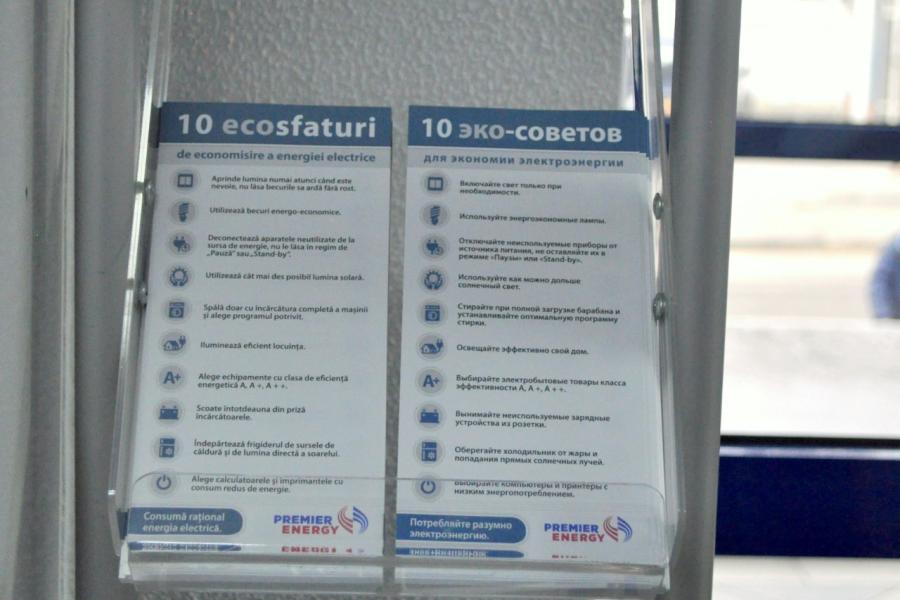Electricity consumption can be reduced while staying at home by using social norms, proves UNDP Moldova’s experiment
09 September 2020
Preliminary results of Premier Energy-UNDP social experiment’s resulted in reduction of energy consumption in July 2020 for more than 20,000 Moldovan households, even with ‘stay at home’ measures.

Premier Energy, in partnership with UNDP, sent 20,000 adapted letters to households that exceed the average monthly consumption of 140kWh, comparing their bills to those of their energy efficient “neighbours”. The letters also offered solutions for energy saving during the pandemic and encouraged people to pay their bills online, as a safety measure against the novel coronavirus.
While the overall population increased their electricity consumption with more than one third – 34.05% – in July 2020, the households that were part of the social experiment used only with 5.06% more electricity, during same period.
“This incredible result proves that just a small action creating an awareness of energy consumption versus my neighbours, has an important impact in energy savings. Now, in the context of the pandemic, when people spend more time at home and work or study remotely, energy efficiency and online payments becomes all the more important for all of us, whether for household consumers or economic agents. We must all have the same goal - to consume rationally energy in order to save money for ourselves and to protect the environment,” said Jose Luis Gomez Pascual, country manager of Premier Energy in Moldova.
Similar letters shall be rolled out in the next period, reaching out to up to 250,000 households throughout Moldova.
The social initiative has been launched in June 2020 and follows-up the largest behavioural electricity experiment in Central Europe and Asia region. The exercise was conducted by UNDP Moldova in partnership with Premier Energy and funded though the UNDP’s Global Innovation Facility. The experiment was inspired by the Opower program in the United States of America.
“Despite the difficult conditions of the COVID-19 pandemic, we were capable to expand and scale-up the successful behavioural experiment of nudging people to reduce their electricity use. The results of the scaling-up yielded impressive positive results, both in terms of supporting energy efficiency at national level and finding innovative solutions for improving human behaviour and consumption of electricity,” noted Dima Al-Khatib, UNDP Resident Representative for the Republic of Moldova.
The final results of the experiment shall be compiled and publicly presented.


